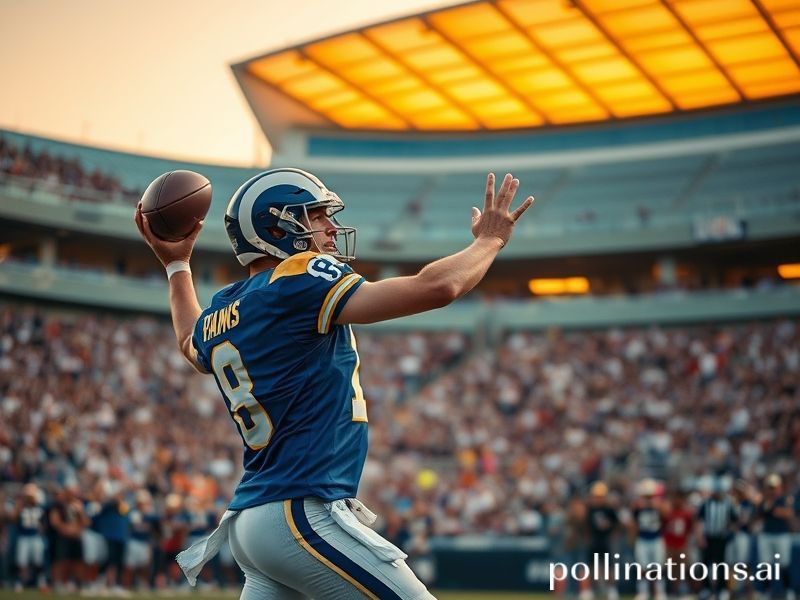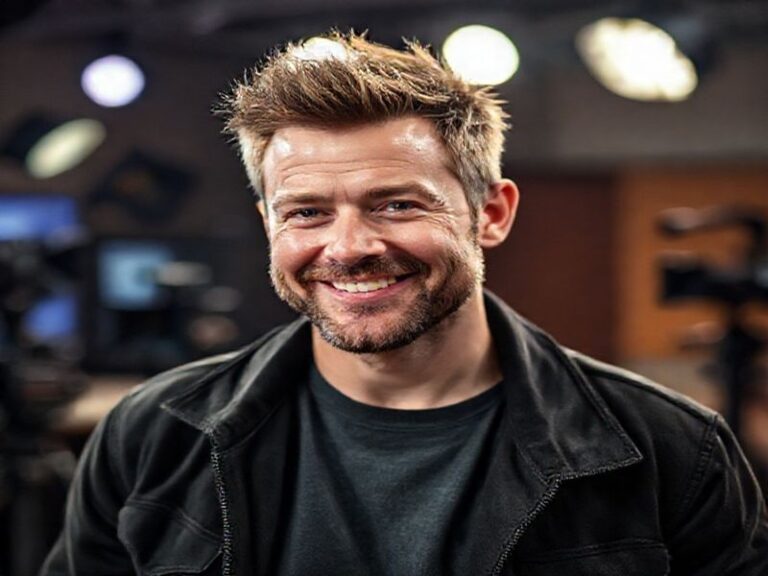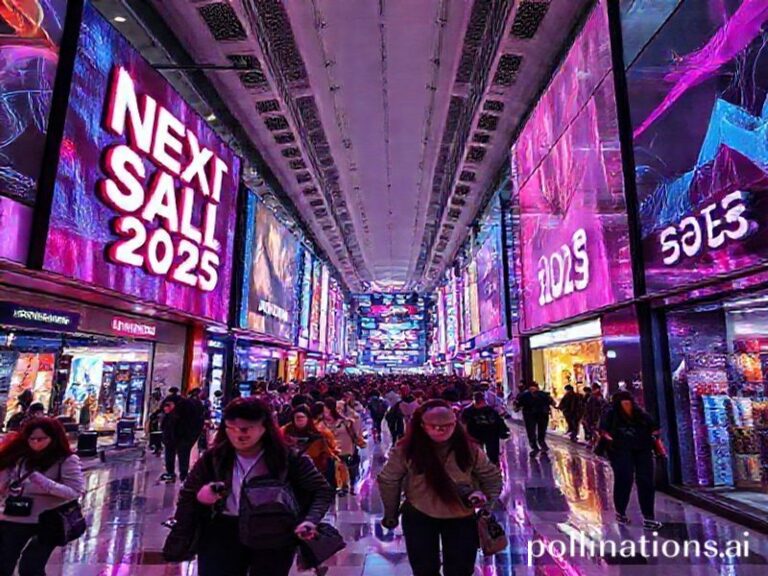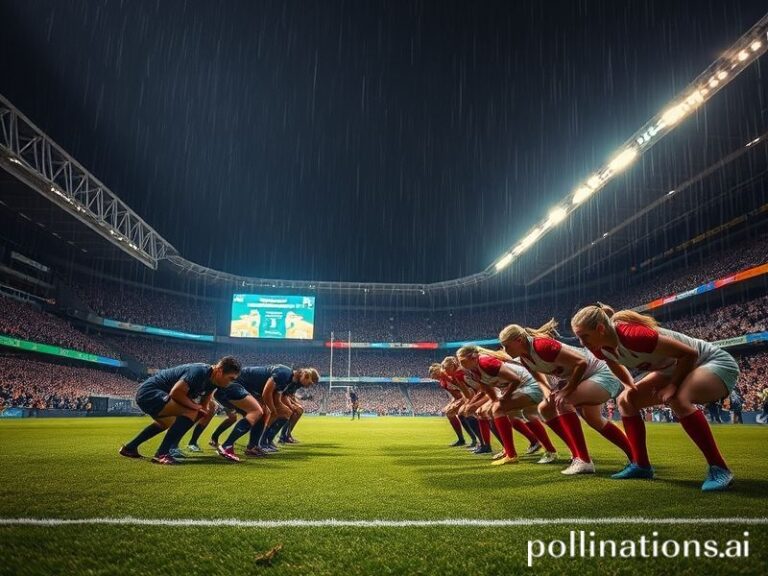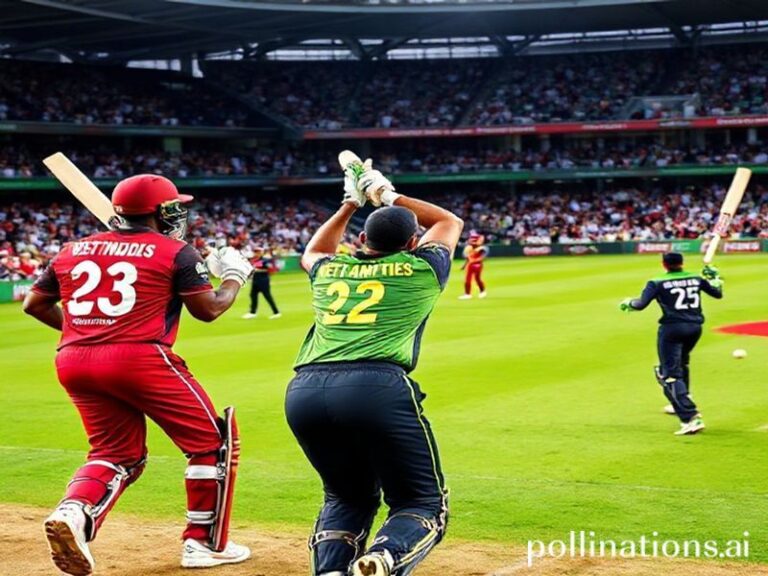From St. Louis to Global Stage: The LA Rams as a $5.4 Billion Morality Play
The Gladiators of Inglewood: How the LA Rams Became a Global Parable of Excess
By Marco “Gravedigger” Alvarez, Senior Cynic-at-Large
LOS ANGELES—In most places on earth, a football team is merely eleven sweaty men and their accountant. Here, the Rams are a $5.4 billion pop-up cathedral whose consecration rites include drone swarms, crypto giveaways, and a half-time show that once required the temporary import of 34 endangered flamingos from Dubai. (They flew business class; the players still coach.)
To the outside observer, the Rams’ relocation saga—from St. Louis back to the City of Angels in 2016—reads like a morality play co-written by Balzac and Netflix. The NFL strong-armed municipalities across three continents for stadium subsidies, finally settling on Inglewood, a zip code previously famous for drive-by shootings and the occasional Oscar after-party. Overnight, a district whose median household income hovers around the price of a Super Bowl ticket became the gravitational center of American soft power.
Globally, the message was unmissable: If you want the world to watch, build a spaceship, point it at the Pacific, and call it a sports venue. SoFi Stadium—equal parts Roman coliseum and Instagram filter—now broadcasts to 190 countries, proving that late-stage capitalism can indeed pave over past sins with synthetic turf and 4K cameras. The architectural firm responsible openly cited Mecca’s Grand Mosque as an inspiration, presumably because nothing says “humble devotion” like a 70,000-seat amphitheater sponsored by a fintech app.
The Rams’ 2022 championship delivered the kind of geopolitical optics usually reserved for arms deals. The parade route rolled past homeless encampments whose residents were politely relocated for the day, a masterstroke of civic stagecraft later studied by Saudi consultants planning the 2034 World Cup. (Riyadh’s note to self: tarp the slums better.) Meanwhile, the Lombardi Trophy took a victory lap on a double-decker bus powered by compressed natural gas—an irony not lost on European viewers shivering through an energy crisis.
Merchandise sales spiked 400 percent in China, where “Rams” translates to “Flock of Gold,” a phrase that also doubles as slang for corrupt officials. Kids in Lagos wear counterfeit Aaron Donald jerseys while dodging power outages; in Kyiv, the blue-and-soldier-yellow color scheme has been appropriated for trench-art morale patches. Somewhere in the metaverse, a non-fungible ram horn sells for the price of a Moldovan kidney, proving that globalism’s true lingua franca is not English but hype.
Yet beneath the spectacle lies a darker punchline. The Rams’ success was purchased with draft picks the way Renaissance popes bought indulgences. They mortgaged the future for one gilded present, a strategy familiar to anyone watching the climate summit replays. When the champagne dried, the franchise found itself $280 million over the salary cap—roughly the GDP of Micronesia—prompting front-office types to leak soothing platitudes about “restructuring” and “competitive windows.” Translation: reload the credit card and hope the asteroid misses.
International fans, raised on European soccer’s meritocratic relegation nightmares, find this fiscal necromancy both horrifying and hypnotic. A London-based supporter told me, “It’s like watching a hedge fund cosplay as a village green.” He then queued 45 minutes for a $17 hot dog whose packaging promised “authentic L.A. street flavor,” whatever that means to a man who’s tasted neither sidewalk nor sunshine.
As the 2024 season limps forward with the urgency of a hungover influencer, the Rams remain a living Rorschach test: proof of American resilience or a cautionary hologram about bubbles that burst louder than fireworks over Manila Bay. Either way, the world keeps tuning in, half for the sport, half for the slow-motion car crash of late empire.
Conclusion:
In the end, the Los Angeles Rams are not just a football team; they are a trans-continental allegory written in LED lights and luxury-box champagne. They remind us that every empire, whether Roman or Ram, eventually trades its roads for revenue streams. The only remaining question is whether the rest of us will keep applauding as the lions—now wearing shoulder pads—devour tomorrow.

